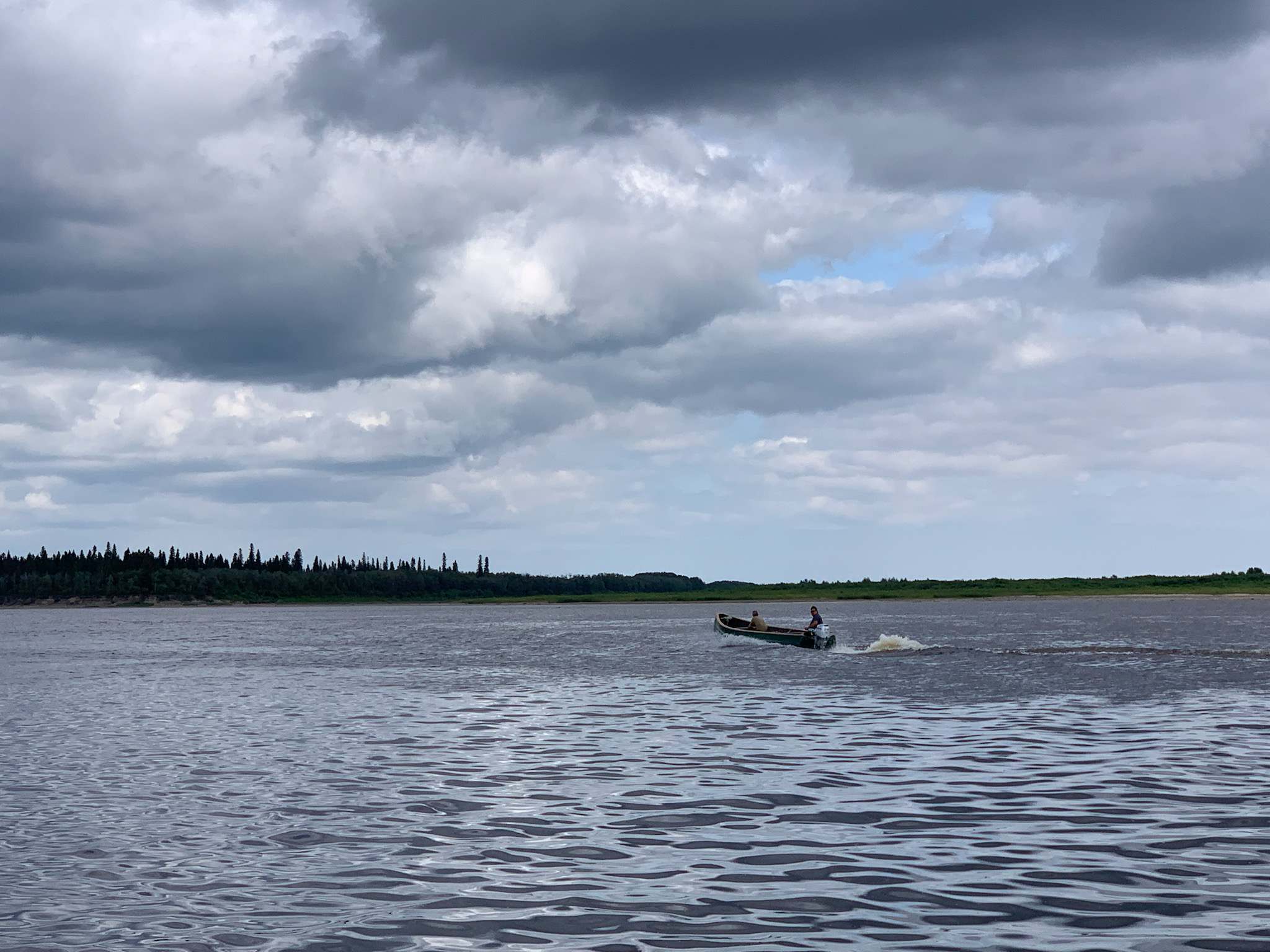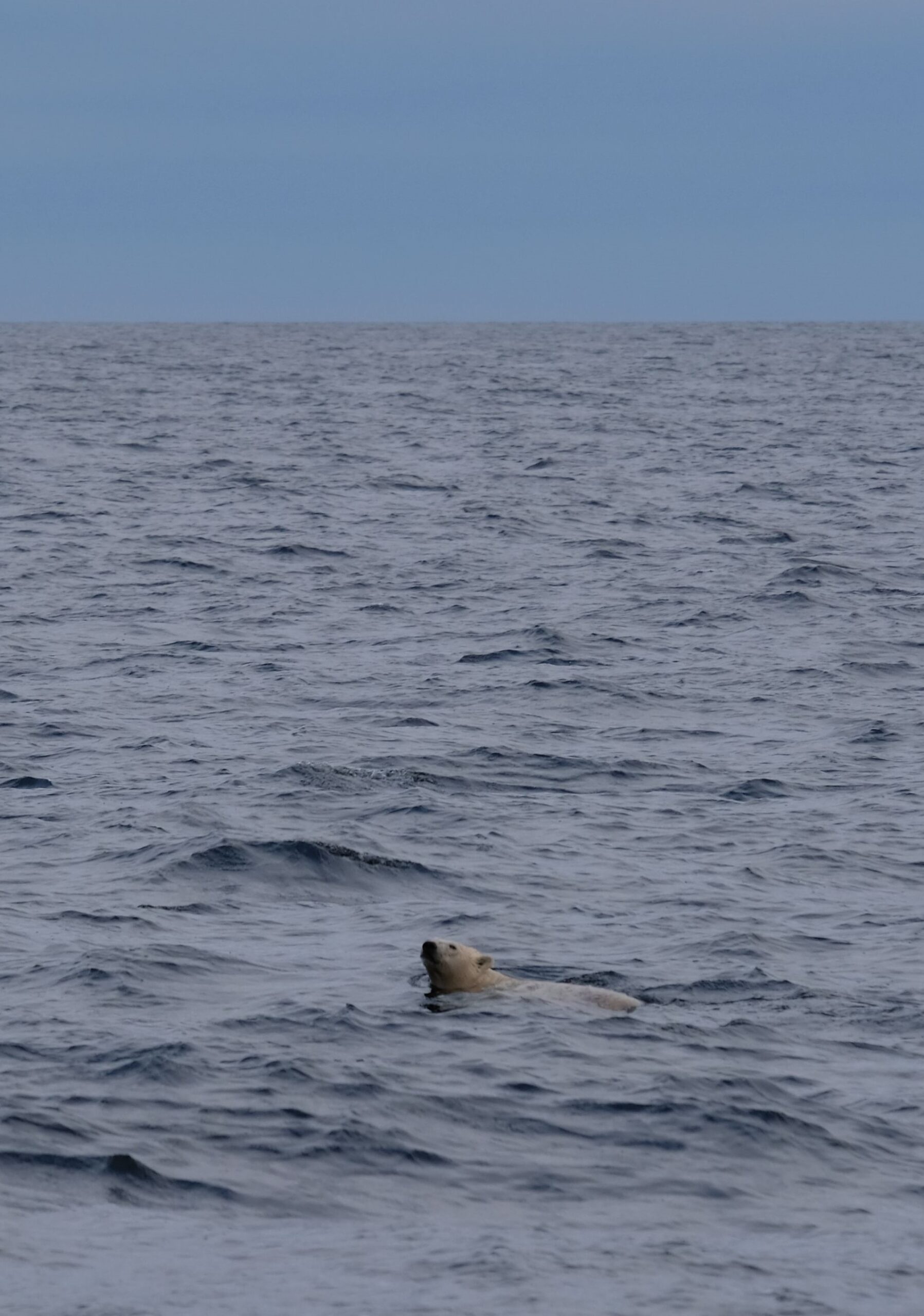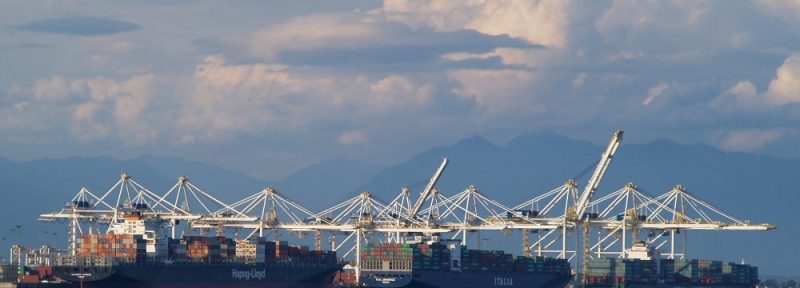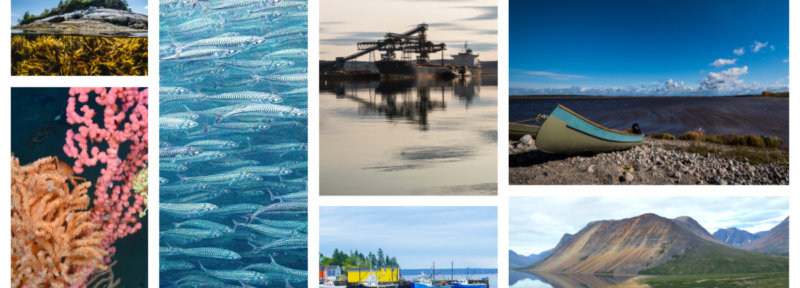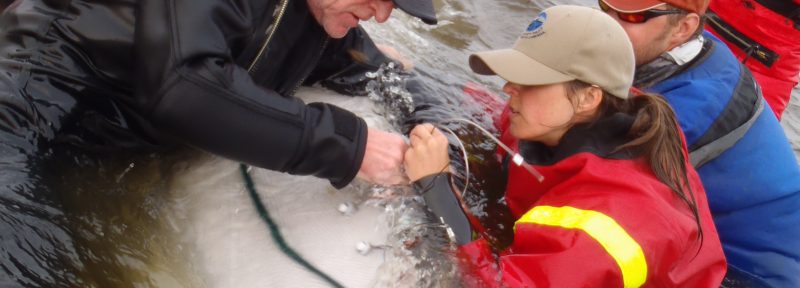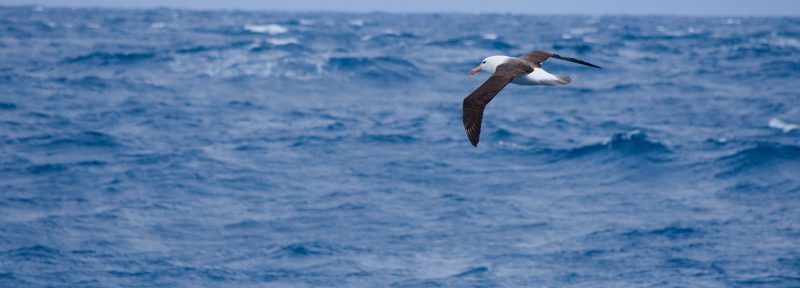Protecting the Waters of Western James Bay and Southwestern Hudson Bay
A freight canoe on Moose River between Moosonee & Moose Factory, ON.
Credit: Jennie Knopp
Today, the Mushkegowuk Council and the federal government took a big step towards conserving the waters of western James Bay and southwestern Hudson Bay for future generations. The council signed a Memorandum of Understanding (MOU) with Parks Canada to launch a feasibility assessment for a proposed National Marine Conservation Area (NMCA) in this region.
What makes this announcement so important? For the Omushkego Cree—the residents and stewards of the region—these are the “breathing and cooling lands” and “birthing grounds” that continue to sustain them with food, medicine, and spiritual connection. The Mushkegowuk Council and Omushkego elders have been the driving force behind efforts to protect western James Bay and southwestern Hudson Bay.
The region is also a haven for wildlife. James Bay, which is relatively warm and shallow, is home to a year-round population of beluga whales, the world’s southernmost population of polar bears and many other iconic Arctic and subarctic species. Additionally, it’s an important stopover for millions of migratory birds that fly across continents from their southern wintering habitat to this region where they nest and feed each summer – hence, the Omushkego name “birthing grounds.”
A polar bear swims in the waters of Weeneebeg.
Credit: Maude Durand
Finally, the area is rich in carbon, which is why the Omushkego call it the “breathing and cooling lands of the earth.” James Bay, southwestern Hudson Bay and the surrounding peatlands play a globally significant role in storing carbon; if it were released through development or industrial activity, the emissions would contribute to climate change. This is the first time that a marine conservation project in Canada has explicitly considered the importance of sequestering carbon, and it will hopefully set a precedent for future initiatives.
Today’s announcement marks the beginning of a two- to three-year process to gather data and knowledge about the region that will help inform conservation planning. Considering how large and important James Bay and southwestern Hudson Bay are, there has been relatively little scientific research done there, so collecting data about the marine ecosystem and species that live there will be a key step. A Traditional Knowledge study will also be conducted, which will include gathering information on marine and coastal use, traditional place names, and important species. And a socio-economic study will be carried out that focuses on how to create a conservation economy in the region.
Oceans North and other project partners have been working to support the Mushkegowuk Council throughout this process. We believe strongly that Indigenous-led conservation is one of the best ways to address our intertwined biodiversity and climate crises, while advancing the well-being of communities.
You can find more information about the announcement here.
Alex Tesar is a communications specialist with Oceans North.

